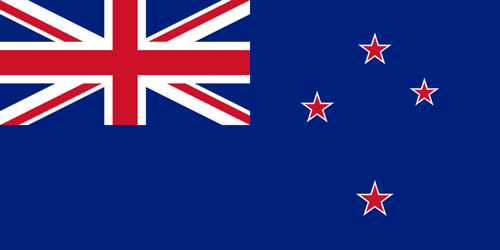If New Zealand is in your travel plans, be prepared to pay a little extra when you request the new compulsory New Zealand Electronic Travel Authority prior to visiting that country for up to a maximum of three months — or up to six months if you are a citizen of Great Britain — and you travel:
- With a passport from one of 60 visa waiver countries and territories; or
- Via a cruise ship as a passenger; or
- As a permanent resident of Australia
New Zealand Electronic Travel Authority Now In Effect
The passport holders of 60 countries and territories which are not required to apply for a visa must hold a New Zealand Electronic Travel Authority prior to traveling to New Zealand.
Allow up to 72 hours for a request for a New Zealand Electronic Travel Authority to be processed — although as few as only ten minutes may be needed for the request to be fulfilled.
You must pay:
- For a New Zealand Electronic Travel Authority request:
- $9.00 — or $5.68 in United States dollars — by using the free official mobile software application program; or
- $12.00 — or $7.58 in United States dollars — if the request is completed via the Internet
- $35.00 — or $22.10 in United States dollars — for an International Visitor Conservation and Tourism Levy at the same time as your New Zealand Electronic Travel Authority request, which became effective as of Monday, July 1, 2019
Travelers Who Do Not Need a New Zealand Electronic Travel Authority
A New Zealand citizen endorsement is a label in your foreign passport or an electronic record linked to the number of that passport. If you travel to another country, it allows you to return to New Zealand on your foreign passport. To apply for an endorsement, you must be a citizen of New Zealand.
You do not need a New Zealand Electronic Travel Authority prior to traveling to New Zealand if you:
- Are a citizen of New Zealand who is traveling with:
- a New Zealand passport, or
- a foreign passport which has a New Zealand citizen endorsement
- Are a citizen of Australian who is traveling with an Australian passport
- Hold a valid visa for New Zealand — including a Permanent Resident Visa
Paying the International Visitor Conservation and Tourism Levy
Many tourists, people on working holidays, and some students and workers coming to New Zealand must pay an International Visitor Conservation and Tourism Levy of $35.00 — or $22.10 in United States dollars.
The reason for this levy is that the number of visitors coming to New Zealand has increased substantially over the past few years, and growth is expected to continue. The International Visitor Conservation and Tourism Levy is your contribution to maintaining the facilities and natural environment you will use and enjoy during your stay in New Zealand. The types of projects which the levy will be used to fund are included in this article from the Ministry of Business, Innovation & Employment.
If you need to pay the International Visitor Conservation and Tourism Levy, you pay it either every time when you request a New Zealand Electronic Travel Authority; or when you apply for a visa, which includes the International Visitor Conservation and Tourism Levy.
Only some people coming to New Zealand must pay an International Visitor Conservation and Tourism Levy — depending on:
- The passport with which you are traveling
- Your reason for coming to New Zealand, and
- The visa for which you apply — if you need one.
If you know the name of your New Zealand visa, you can find out if you need to pay an International Visitor Conservation and Tourism Levy by using this tool called Fees, decision times and where to apply. For example, if you are from Peru and coming for a working holiday, your visa is a Peru Working Holiday Visa.
There are some other visa holders who do not need to pay the International Visitor Conservation and Tourism Levy. Use the Fees, decision times and where to apply tool to confirm what applies to you.
All the information about fees, including the International Visitor Conservation and Tourism Levy, shows in the results.
If you do not know the name of your visa, you can work out which visa you need to apply for by checking out the different options which apply to your situation: Explore New Zealand visa options.
You do not pay an International Visitor Conservation and Tourism Levy if you:
- Travel to New Zealand with:
- an Australian or New Zealand passport
- a passport from many Pacific Island nations
- Are a transit passenger arriving at and leaving from Auckland International Airport
- Have a New Zealand resident visa
- Hold a Business Visitor Visa or APEC business travel card
List of Visa Waiver Countries and Territories
In addition, if you are from one of the 60 countries and territories which qualify for the visa waiver and are coming to New Zealand for a medical consultation or treatment, you must apply for a visa.
The 60 countries and territories which qualify for the visa waiver for New Zealand are as follows:
- Andorra
- Argentina
- Austria
- Bahrain
- Belgium
- Brazil
- Brunei
- Bulgaria
- Canada
- Chile
- Croatia
- Cyprus
- Czech Republic
- Denmark
- Estonia — citizens only
- Finland
- France
- Germany
- Greece
- Hong Kong — residents with HKSAR or British National–Overseas passports only
- Hungary
- Iceland
- Ireland
- Israel
- Italy
- Japan
- Korea — South
- Kuwait
- Latvia — citizens only
- Liechtenstein
- Lithuania — citizens only
- Luxembourg
- Macau — only if you have a Macau Special Administrative Region passport
- Malaysia
- Malta
- Mauritius
- Mexico
- Monaco
- Netherlands
- Norway
- Oman
- Poland
- Portugal — if you have the right to live permanently in Portugal
- Qatar
- Romania
- San Marino
- Saudi Arabia
- Seychelles
- Singapore
- Slovak Republic
- Slovenia
- Spain
- Sweden
- Switzerland
- Taiwan — if you are a permanent resident
- United Arab Emirates
- United Kingdom — if you have the right to reside permanently in the United Kingdom
- United States of America — including USA nationals
- Uruguay
- Vatican City
List of Transit Visa Waiver Countries: In Transit Through New Zealand
Citizens of 24 countries do not have to apply for a visa before passing through New Zealand as a transit passenger; but they must request a New Zealand Electronic Travel Authority.
If you are passing through Auckland International Airport as a transit passenger on the way to or from Australia or on your way to another country, you are not required to apply for a visa if you are a passport holder of one of the following 24 transit visa waiver countries — but you must request a New Zealand Electronic Travel Authority prior to traveling to New Zealand.
- Bahamas
- Bermuda
- Bolivia
- Colombia
- Costa Rica
- Ecuador
- Federated States of Micronesia
- Indonesia
- Kiribati
- Nauru
- Palau
- Panama
- Papua New Guinea
- Paraguay
- Peru
- Philippines
- Republic of Marshall Islands
- Samoa
- Solomon Islands
- Thailand
- Tonga
- Tuvalu
- Vanuatu
- Venezuela
Summary
You can get someone to help you with your request for a New Zealand Electronic Travel Authority — but you will need to tell them about your criminal conviction history and whether you are seeking medical treatment in New Zealand.
At a maximum total cost of almost $30.00 in United States dollars, the combination of the New Zealand Electronic Travel Authority and the International Visitor Conservation and Tourism Levy just to enter New Zealand may not be all that bad when compared to the total cost of entering select other countries around the world; but other countries have either reduced or eliminated visa fees — such as Brazil, Argentina, Chile and Belarus. I give reasons as to why other countries should follow their leads in this article.
Ideally, I would really like to see the day where you and I can travel anywhere in the world with few to no impediments; but with human nature being the way it is, I know that will not happen anytime soon — if at all — especially with the recent news that citizens of the United States will need to register to visit parts of Europe starting in the year 2021…
…but at least the world still seems to generally be heading closer towards that goal overall — even if it is only at a glacial pace…
Source: the Government of New Zealand.

